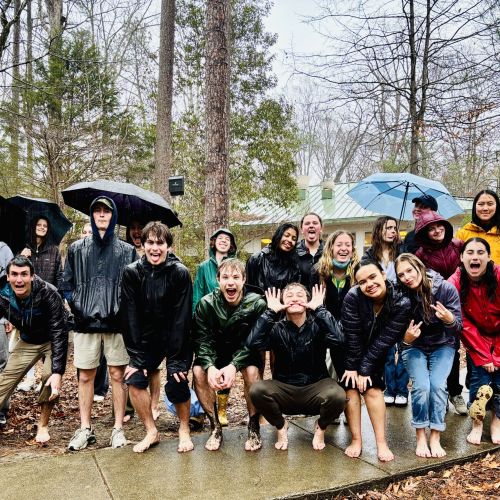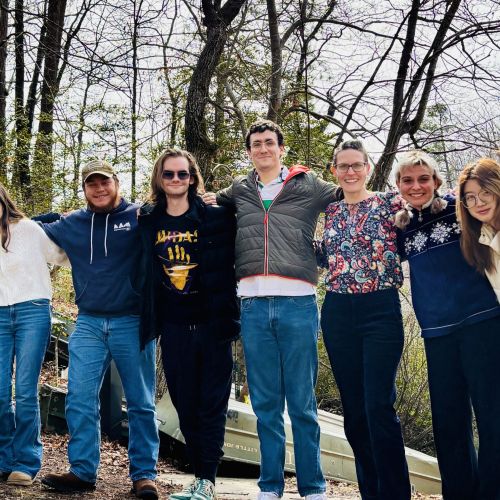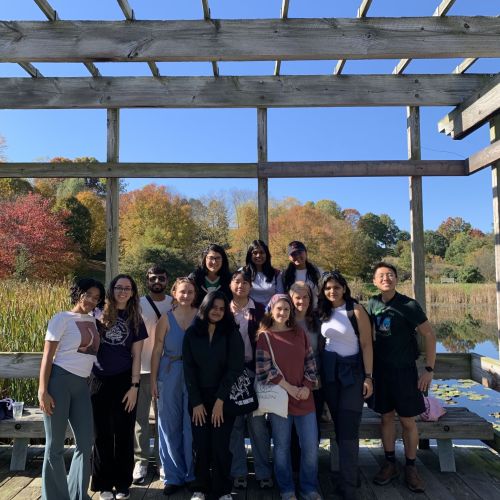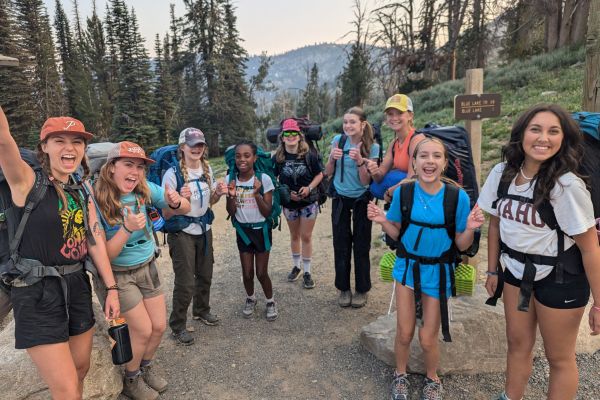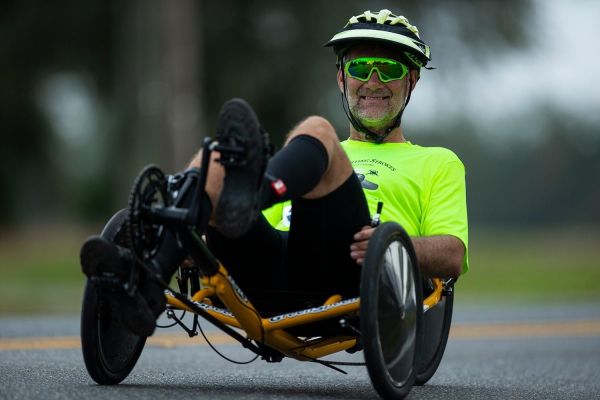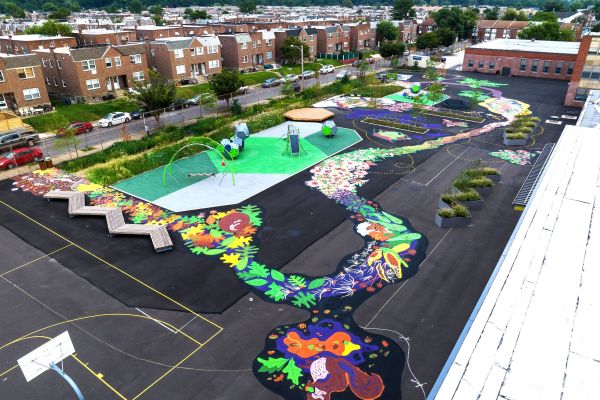About
The Campus Nature Rx Network (CNRx) addresses the need for effective, attractive, low-cost, and worthwhile approaches to engaging college students in nature. As part of a growing coalition of colleges, universities, and professionals, campus leaders develop and expand inclusive and transformative Nature Rx programs customized to each campus's context, culture, and goals.
Program Details
College students today face numerous societal, interpersonal, and environmental challenges that contribute to physical and psychological distress. As evidence of this, in spring, 2024 the National College Health Assessment (2024) surveyed greater than 100,000 college students and found that 76.8 percent rated their overall stress as moderate to high; 49.7 percent rated themselves as lonely on the UCLA Loneliness Scale; and 35.2 percent reported having received psychological or mental health services within the previous 12 months.
There are numerous underlying causes of this mental health crisis among college-aged youth. Among these are the effects of academic and financial pressures, relationship issues, information overload, anxiety about the future, screentime, and social media (Pedrelli et al., 2015). These challenges can have a real impact on academic performance, with student classroom effectiveness reportedly reduced 22% due to depression, and nearly 38% due to stress (American College Health Assessment, 2024).
Many colleges are struggling to meet the surging demand for student mental health services (APM Reports, 2024). There is considerable evidence, however, that spending time engaging with nature or in natural settings, can greatly reduce psychological distress (Aghabozorgi et al., 2024; Ning et al., 2023). Further, engagement with nature has been shown to enhance college students' sense of belonging and reduce feelings of loneliness, as exposure to natural environments can foster social connectedness and strengthen ties to campus environments (Kuo et al., 2018; Henderson et al., 2024). Even exposure to virtual nature, such as posters and murals, has recently been shown to reduce symptoms of anxiety in college students (Browning, et al., 2023).
The need for effective, attractive, and worthwhile approaches to engaging college students in nature was the motivation behind the creation of the Campus Nature Rx Network (CNRx). Following the publication of the book ‘Nature Rx: Improving College Student Mental Health’ in January 2019, representatives from the four campuses profiled in the book, gathered. At this meeting, Dr. Don Rakow from Cornell University, Stacey Parker and Haven Kiers from the University of California-Davis, Dr. Jean Larson from the University of Minnesota, and Dr. Dorothy Ibes from William & Mary shared the unique approaches to student health through nature engagement each had been applying on their campuses. These passionate individuals sparked the creation of the Campus Nature Rx Network, a vibrant coalition now encompassing over 80 colleges and universities of all sizes and affiliations and over 150 professionals.
The key to the success of CNRx is that it is inspirational and motivational, rather than prescriptive. Each school’s Nature Rx program is customized to their physical campus, student demographics, and administrative priorities. To spur the development of new or expanded programs, the CNRx team coordinates an annual online Campus Nature Rx Symposium, a bi-monthly newsletter with both research-based and practical approaches to nature engagement, access to relevant resources, and opportunities for cross-campus dialogue. All of these offerings are available free of charge.
A new and exciting component of CNRx is our CNRx Academy Certificate Program. The Academy includes live workshops, one-on-one coaching sessions, feedback on targeted assignments, and exclusive materials to inspire and guide campus leaders in creating inclusive and transformative Nature Rx programs customized to each campus's context, culture, and goals. Graduates leave with a fully reviewed Campus Nature Rx implementation plan and their campus receives CNRx Certificate status.
The flexible approach to promoting healthy campuses supported by CNRx can be utilized by all institutions of higher learning, from small private schools to large, complex universities. As students increasingly look for non-pharmacological approaches to address their wellbeing, and colleges look to support the rising health needs of their students, CNRx provides an accessible, inclusive, and low-cost nature-based approach to a healthier future.
Sources
American College Health Association – National College Health Assessment. (2024). acha.org/news/student-health-data-from-the-spring-2024-ncha-now-available/
Aghabozorgi, Koorosh, Alexander van der Jagt, Simon Bell, Harry Mmith. (2024). How university blue and green space affect students’ mental health: A scoping review. Urban Forestry and Urban Greening. https://doi.org/10.1016/j.ufug.2024.128394
APM Human Services International. 2024 Annual Report. https://apm.net.au/getmedia/c8077346-a07a-40b2-9f08-01ceb26b518d/Annual_Report_2024.pdf
Browning, M.H.E.M., Shin, S., Drong, G. et al. (2023). Daily exposure to virtual nature reduces symptoms of anxiety in college students. Science Reports https://doi.org/10.1038/s41598-023-28070-9
Henderson, Lauren, Laura Tipper, Sioned Willicombe, Merideth Gattis. (2024). Shared time in nature increases feelings of social connection amongst university students. Journal of Environmental Psychology. https://doi.org/10.1016/j.jenvp.2024.102343
Kuo, Ming, Matthew HEM Browning, and Milbert L. Penner. (2018) Do lessons in nature boost subsequent classroom engagement? Refueling students in flight. Frontiers in Psychology 8: 2253
Ning W, Yin J, Chen Q and Sun X (2023) Effects of brief exposure to campus environment on students’ physiological and psychological health. Frontiers in Public Health 11:1051864 https://doi.org/10.3389/fpubh.2023.1051864
Pedrelli, P., M. Nyer, A. Yeung et al. (2015). College Students: Mental Health Problems and Treatment Considerations. Academic Psychiatry 39 https://doi.org/10.1007/s40596-014-0205-9
Services Offered
- Annual online Campus Nature Rx Symposium
- Bi-monthly newsletter available free to representatives of member institutions; join here
- CNRx Academy Certificate Program
Staff Composition
Campus Nature Rx is supported by a dedicated team of directors, editors, and advisors. Campus programs are run by leaders on their respective campuses.
Co-directors:
Donald A. Rakow, PhD
Associate Professor (retired) in the Section of Horticulture, School of Integrative Plant Science, Cornell University
Certified Guide, Association of Nature and Forest Therapy
Dorothy C. Ibes, PhD
Faculty, Environment & Sustainability, William & Mary
Director, Parks & Ecotherapy Research Lab (PERL)
Office: Integrated Science Center (ISC)
